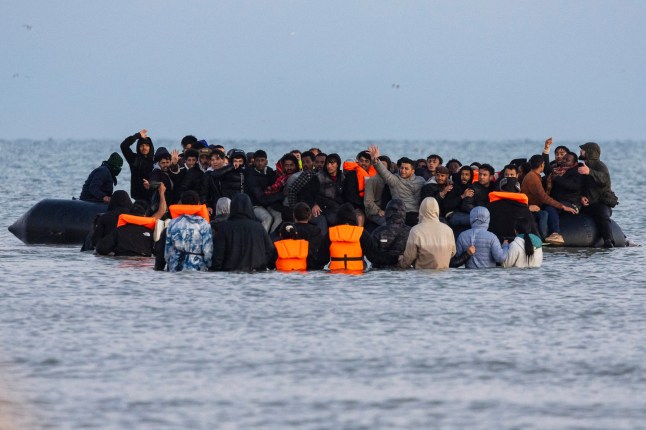
Britain is looking to Denmark for a solution to curb the number of asylum seekers (Picture: AFP)
Locked in a battle to fend off Nigel Farage and show voters it takes border security seriously,Labour is looking overseas.
Ministers are seriously considering importing Denmark’s ‘zero refugees’ model,after hotel protests dominated the migrant debate over the summer.
The government has been watching the Scandinavian nation,where around 95 per cent of asylum seekers are turned away,with keen interest.
To be able to settle in Denmark,all migrants must be in full-time employment.
Those few that are accepted are granted a revocable temporary visa,on the proviso they can be returned to their home nation if it is later deemed safe enough.
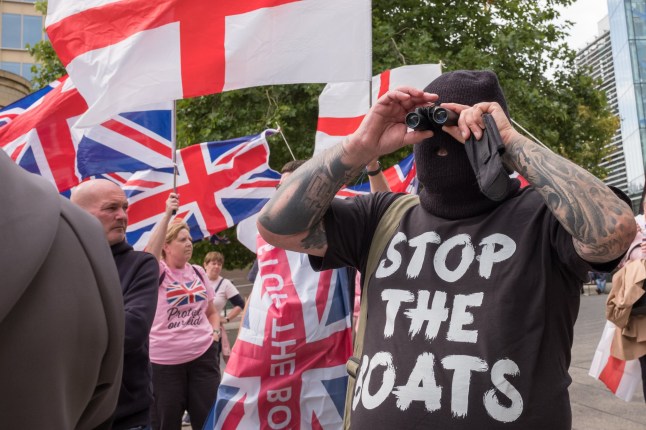 Demonstrators gather during an anti-immigration protest outside the New Bridge Hotel in Newcastle (Picture: Ian Forsyth)Sir Keir Starmer has frequently stood alongside his Danish counterpart Mette Frederiksen,with both leaders having agreed on strong support for Ukraine as part of the Coalition of the Willing.However,it’s Ms Frederiksen’s success at bringing successful asylum claims to a 40-year low and holding off the tide of right-wing populist sentiment which will be of most interest to Starmer.Labour is now trailing Farage’s party by an average of 10 percentage points in the latest polls.The Home Office is studying Denmark’s other tough migration policies,which include restrictions on family reunification.
Demonstrators gather during an anti-immigration protest outside the New Bridge Hotel in Newcastle (Picture: Ian Forsyth)Sir Keir Starmer has frequently stood alongside his Danish counterpart Mette Frederiksen,with both leaders having agreed on strong support for Ukraine as part of the Coalition of the Willing.However,it’s Ms Frederiksen’s success at bringing successful asylum claims to a 40-year low and holding off the tide of right-wing populist sentiment which will be of most interest to Starmer.Labour is now trailing Farage’s party by an average of 10 percentage points in the latest polls.The Home Office is studying Denmark’s other tough migration policies,which include restrictions on family reunification.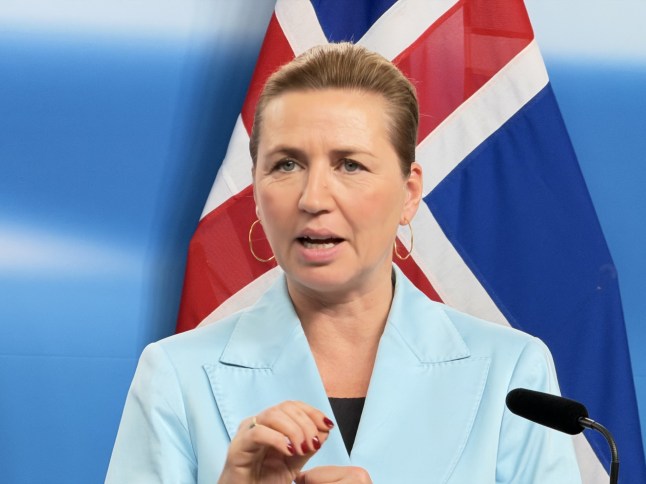 Danish prime minister Mette Frederiksen has held off the far-right with hardline migration policies which turn away 95 per cent of asylum applicants (Picture: Anadolu)
Danish prime minister Mette Frederiksen has held off the far-right with hardline migration policies which turn away 95 per cent of asylum applicants (Picture: Anadolu)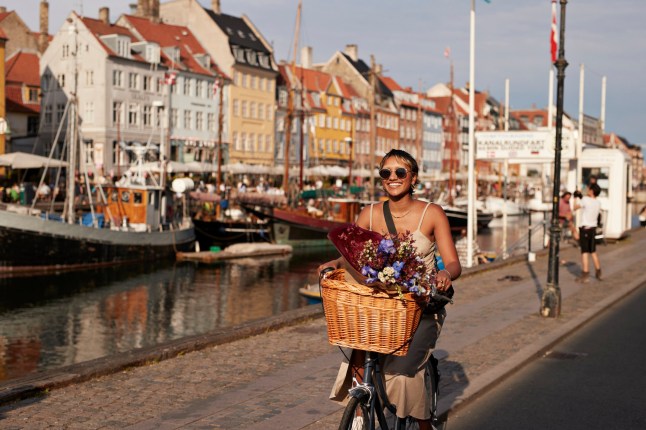 Nyhavn pier in Copenhagen. Ministers are hoping to learn from the Scandinavian country,which has reduced successful asylum claims to their lowest number in 40 years (Picture: Getty Images)To join a spouse in Denmark,both the sponsor partner and the applicant must be at least 24 years of age,a measure introduced to curb forced marriages,according to Sky News.Both must pass a language test,have not claimed benefits for three years and the partner wishing to migrate must have a financial guarantee from their sponsor.Like the UK,Denmark considered an agreement with Rwanda to process asylum applicants abroad,but plans for this have been on hold since 2021.Three years before that,the country passed controversial legislation to demographically alter what it termed ‘ghettos’ or areas with a non-western migrant population (including their descendants) of more than 50 per cent.Sources say that Home Secretary Shabana Mahmood is eager to meet her Danish counterpart Rasmus Stokland as soon as possible to learn about how similar measures could be introduced in the UK to deter people from entering via unauthorised routes.
Nyhavn pier in Copenhagen. Ministers are hoping to learn from the Scandinavian country,which has reduced successful asylum claims to their lowest number in 40 years (Picture: Getty Images)To join a spouse in Denmark,both the sponsor partner and the applicant must be at least 24 years of age,a measure introduced to curb forced marriages,according to Sky News.Both must pass a language test,have not claimed benefits for three years and the partner wishing to migrate must have a financial guarantee from their sponsor.Like the UK,Denmark considered an agreement with Rwanda to process asylum applicants abroad,but plans for this have been on hold since 2021.Three years before that,the country passed controversial legislation to demographically alter what it termed ‘ghettos’ or areas with a non-western migrant population (including their descendants) of more than 50 per cent.Sources say that Home Secretary Shabana Mahmood is eager to meet her Danish counterpart Rasmus Stokland as soon as possible to learn about how similar measures could be introduced in the UK to deter people from entering via unauthorised routes.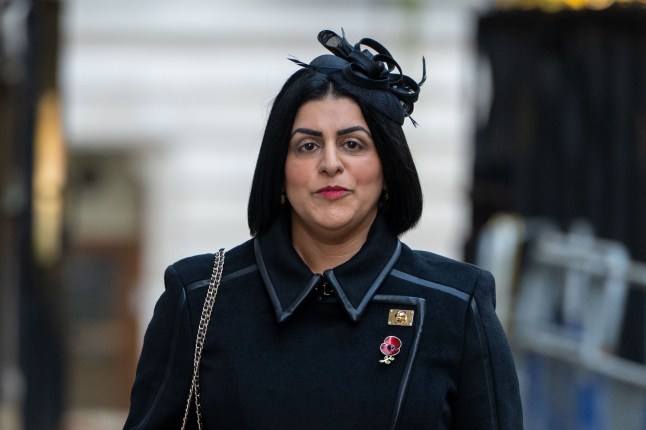 Home Secretary Shabana Mahmood is eager to meet her Danish counterpart to learn how their tough model could work in the UK (Picture: Shutterstock)But Ms Mahmood may face opposition on her own benches to taking the Danish route,particularly from moderates who have criticised the regime ‘hardcore’,‘dangerous’ and bordering on ‘racist’.There also remain several obstacles to successfully adapting the model to Britain,where a sizeable number of migrants want to reunite with family or speak English.It came as 503 migrants crossed the English Channel in one day.The latest arrivals came in seven small boats on Saturday,with more vessels making the crossing from France on Sunday.It brings the total for the past three days to 1,772,and for the year so far to 38,726. This compares with 32,119 who made the journey by the same date last year,and 26,699 in 2023.More people were photographed in Dover on Sunday being brought ashore on a Border Force vessel while wearing lifejackets,with some wrapped in blankets.
Home Secretary Shabana Mahmood is eager to meet her Danish counterpart to learn how their tough model could work in the UK (Picture: Shutterstock)But Ms Mahmood may face opposition on her own benches to taking the Danish route,particularly from moderates who have criticised the regime ‘hardcore’,‘dangerous’ and bordering on ‘racist’.There also remain several obstacles to successfully adapting the model to Britain,where a sizeable number of migrants want to reunite with family or speak English.It came as 503 migrants crossed the English Channel in one day.The latest arrivals came in seven small boats on Saturday,with more vessels making the crossing from France on Sunday.It brings the total for the past three days to 1,772,and for the year so far to 38,726. This compares with 32,119 who made the journey by the same date last year,and 26,699 in 2023.More people were photographed in Dover on Sunday being brought ashore on a Border Force vessel while wearing lifejackets,with some wrapped in blankets.United News - unews.co.za